Edições Impressas
8 de agosto de 2025
Young Reporter|Climate Change Boardgame – Level 1
Article published on Joca 245
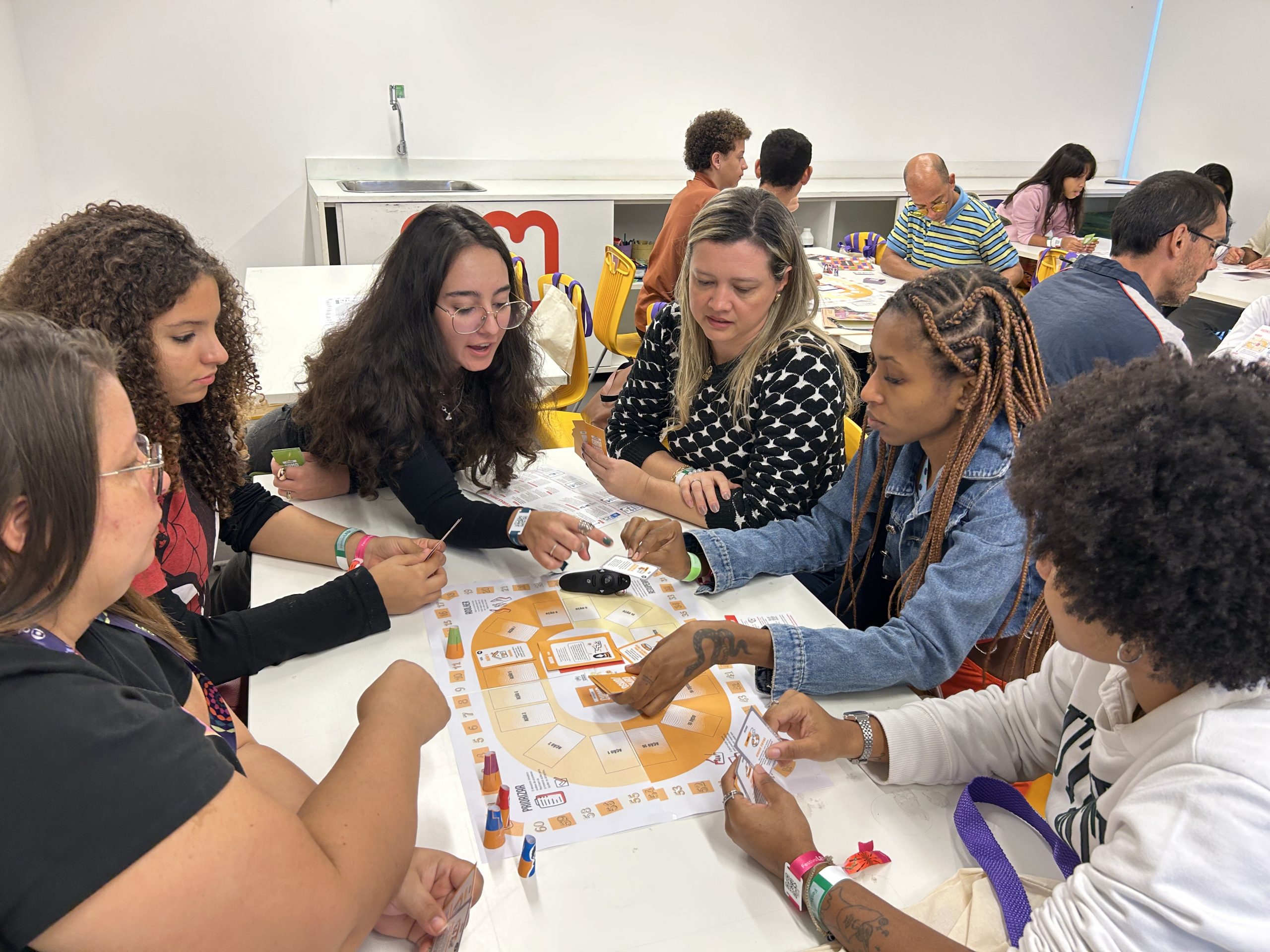
João Almeida, Felipe Neves, Gerson Silva, and Alexandra Papini met in journalism school and, driven by a desire to help people, created the collective 3Palitos. The idea was to bring political and social issues to schools in a lighthearted and fun way.
In June, in partnership with Joca and the United Nations Refugee Agency, UNHCR, the collective launched the game Operation Climate, which addresses climate change and its impact on the forced displacement of people. To learn more about the game and the group’s work, 9-year-old reader Clarice L. interviewed Felipe Neves.
The collective’s name is 3Palitos, but there are four of you. Why was this name chosen?
In fact, the name doesn’t have much to do with the number of people in the collective. The idea behind it was to combine two things: the expression “two sticks,” used when we want to say that something is very easy to solve, and the three branches of government—the Legislative, the Executive, and the Judiciary. This is because, in our games, we explain how these three branches of government work and who serves in them, such as councilors, representatives, mayors, and jurists.
What’s the game creation process like? Do you need to write, draw, or conduct testing?
Yes, we do all that. First, we choose the theme of the game—which I consider the most interesting step—and think of creative ways to approach it. In Operation Climate, the subject is climate change, and since we are journalists, we had to study a lot: we watched documentaries as well as read articles and reports until we fully understood the topic. Only then did we structure the game.
The entire process, from research to final testing, took close to eight months. Even after completion, the game still goes through adjustments. Creating games like this takes time, requires collaboration, and involves a lot of testing, but it’s a really enjoyable process.
Speaking of Operation Climate, how did you come up with the idea for it?
It was different from the other games we’ve created because it was commissioned by the United Nations High Commissioner for Refugees (UNHCR). They asked us for a game about climate refuge, which is what happens when people must leave their homes due to extreme weather events, such as floods, droughts, and wildfires.
With this theme in hand, we went deeper into the research and developed the game in partnership with Joca, which was responsible for the design among other things, and took part in the testing. The main idea is to show how society should act when people are affected by climate disasters, and how the government should offer protection and take preventative action in the event of new extreme events.
Of the game’s impactful themes, which do you think is most important to teach?
From the outset, we wanted to show that it is not enough to take one-off action to help those affected. For example, if people in Porto Alegre, which recently experienced flooding, need to leave their home after a flood, they will obviously need food, clothing, and medicine. But that alone is not enough. They will also face difficulties in finding employment, obtaining documents, and rebuilding their lives.
For this reason, the main premise of the game is to show that a cycle of actions is needed to address the impact of climate change. The board itself is circular in shape, reinforcing this logic. Players go through different stages, working together to protect the city. In the game, we work with five possible extreme events: floods, wildfires, hurricanes, sea level rise, and earthquakes.
What have you learned from observing children’s reactions while playing?
We’ve learned that no topic needs to be forbidden, boring, or bureaucratic. Everything can be discussed, as long as it’s done with care and respect. There’s still a lack of awareness about how to best discuss sensitive topics. While playing the game, it’s very rewarding to see people making an effort to understand, engaging with and remembering something they’ve already heard about. Ultimately, every topic can—and should—be discussed. You just need to know how.
What tips do you have if I or another Joca reader wants to create games?
I think the first tip is to always think about who is going to play, not just the idea in your head. Players are the ones who will decide whether the game is fun, so the focus needs to be 100% on their experience.
Learn about and download the game Operation Climate.
Ixi! Você bateu no paywall!
Ainda não é assinante? Assine agora e tenha acesso ilimitado ao conteúdo do Joca.

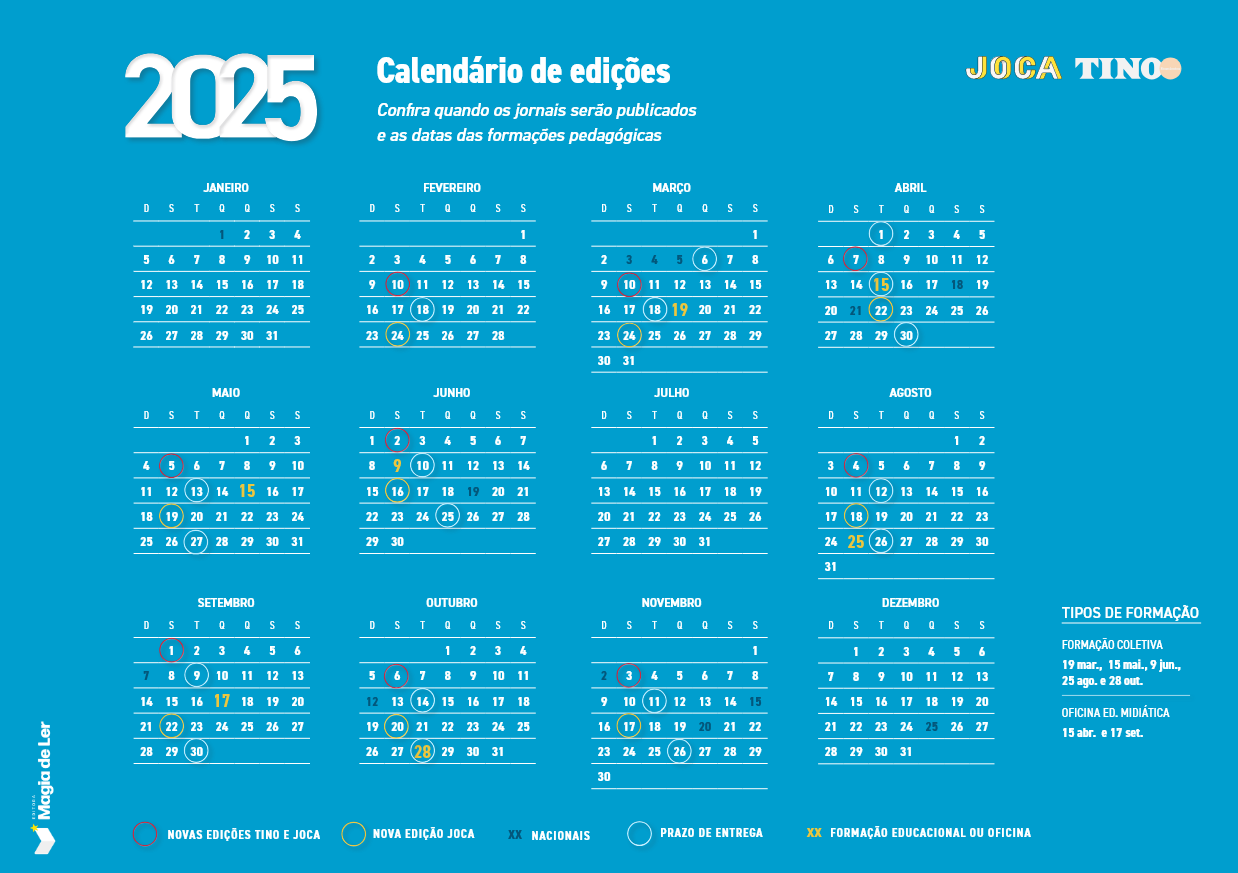
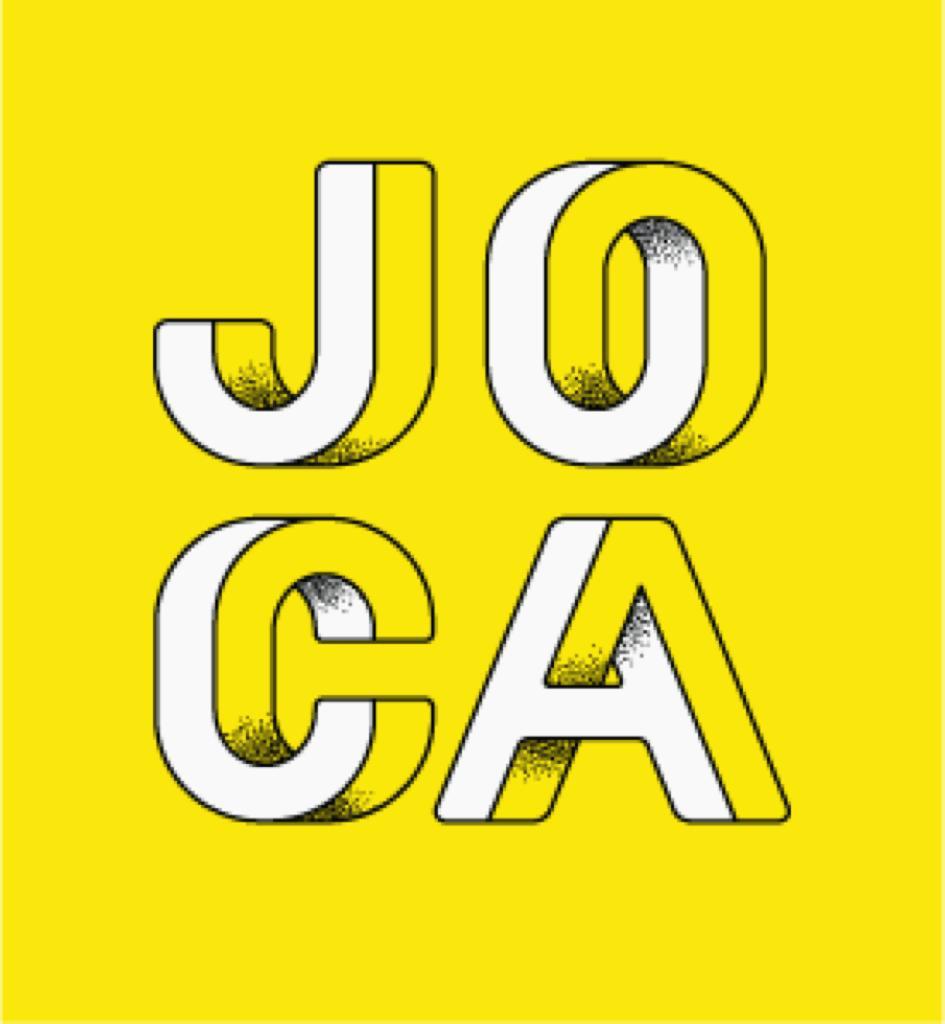



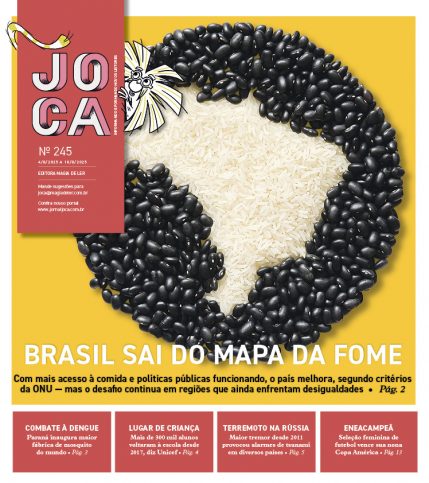

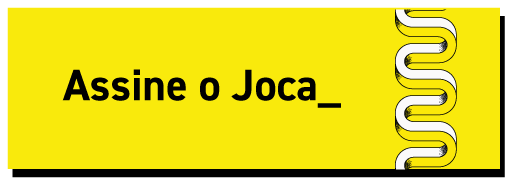
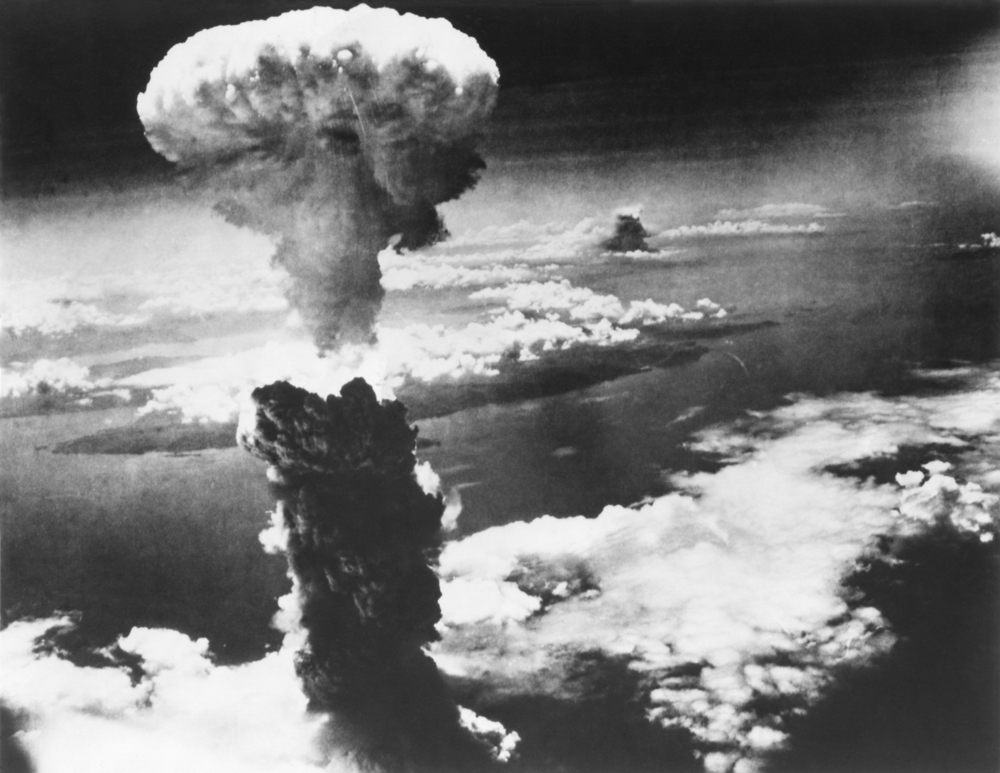
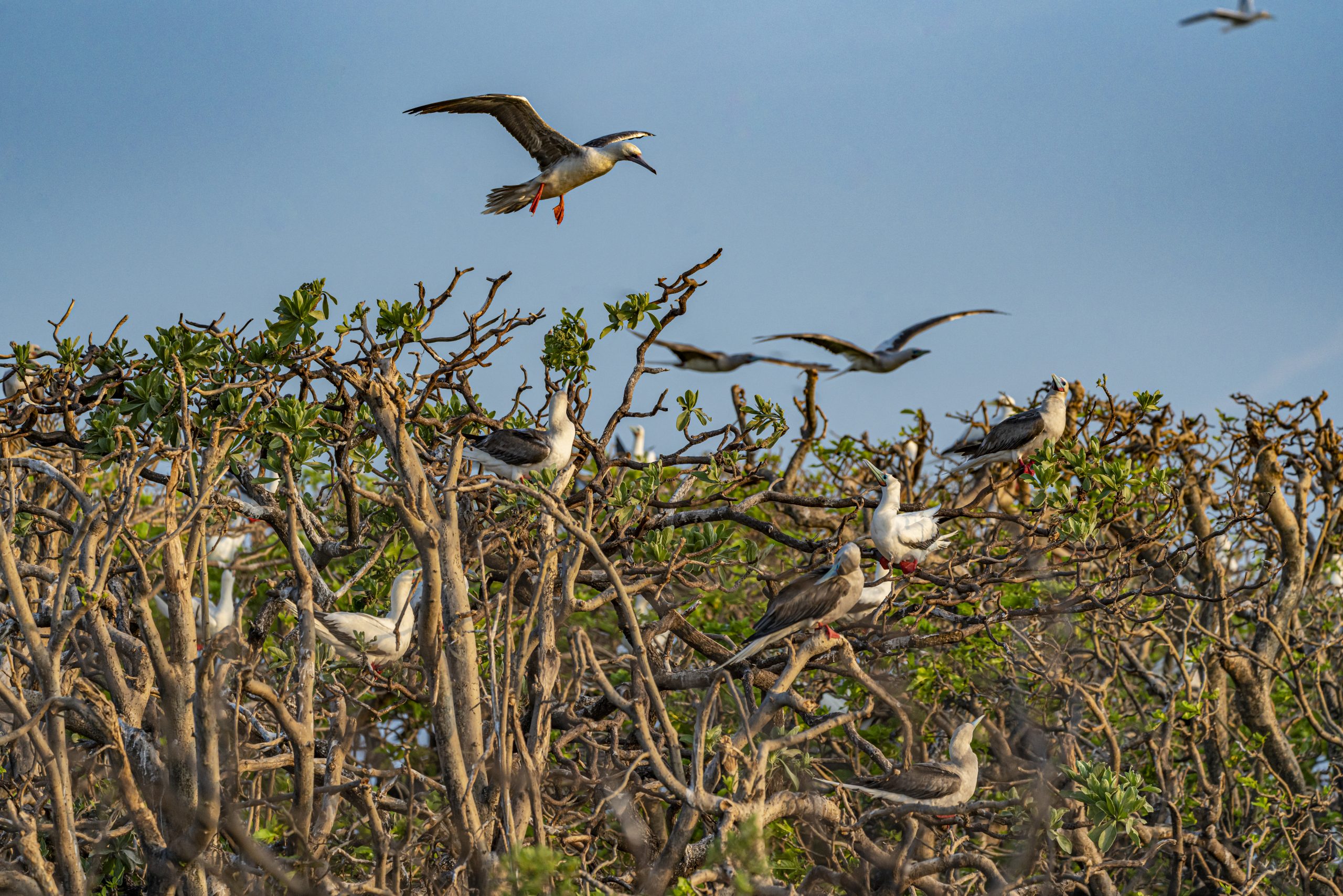
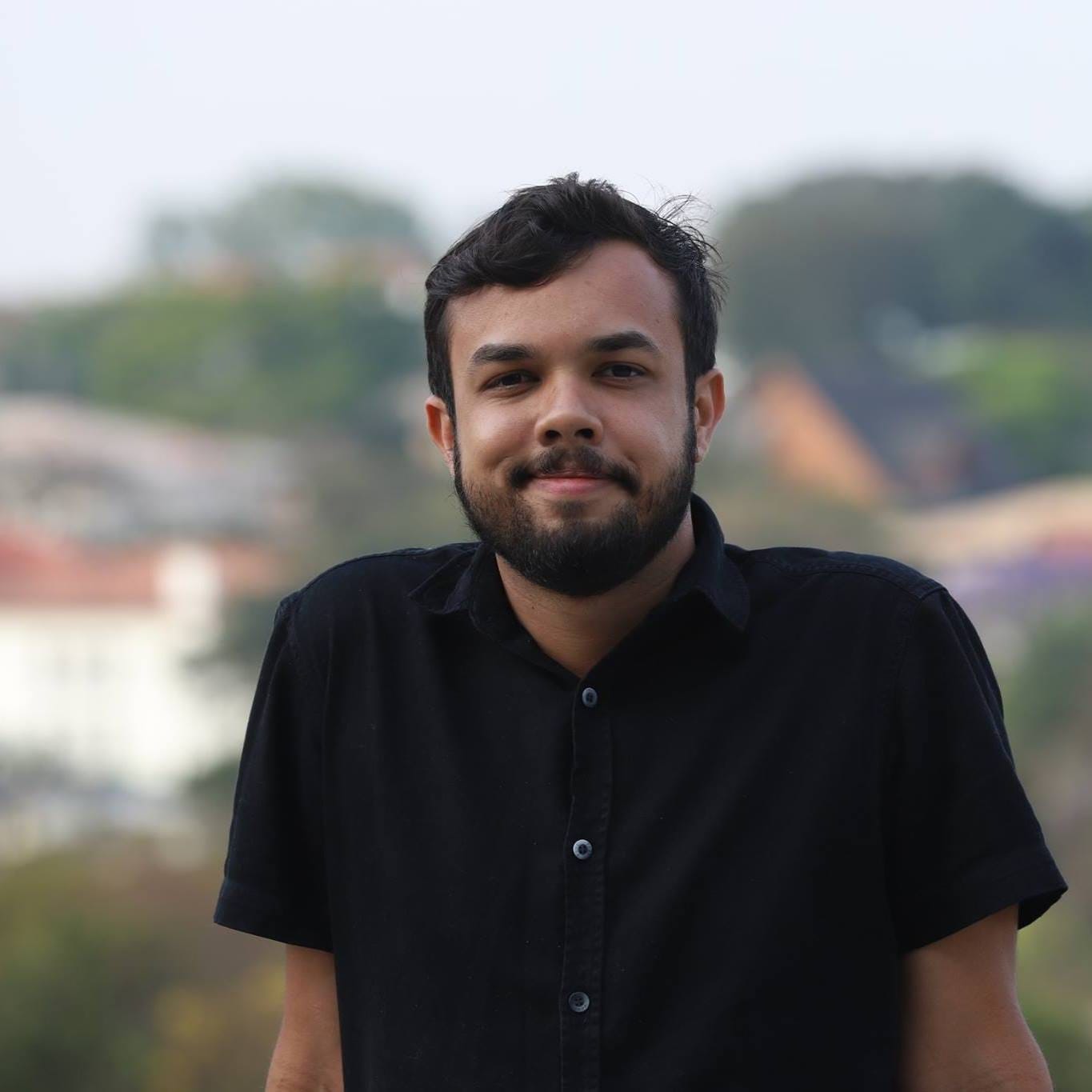
Você precisa fazer o login para publicar um comentário.